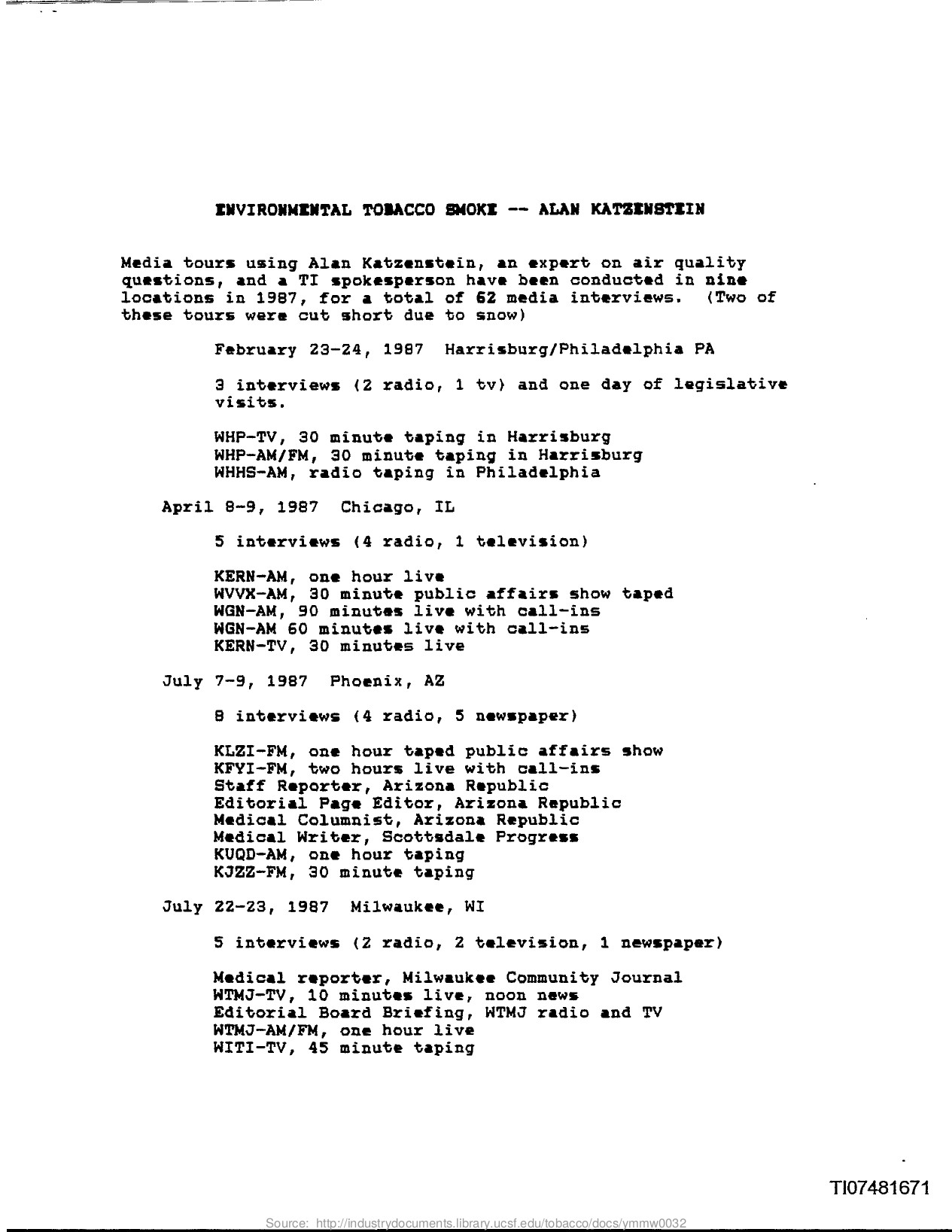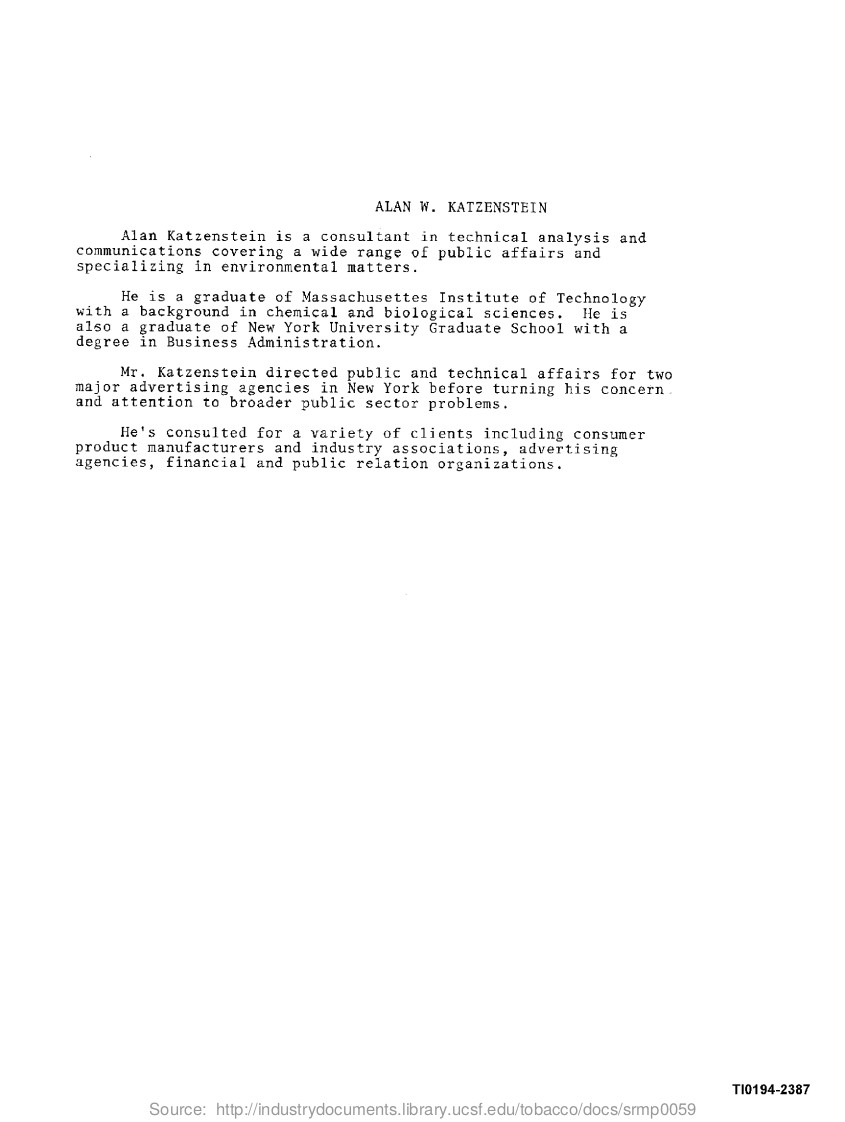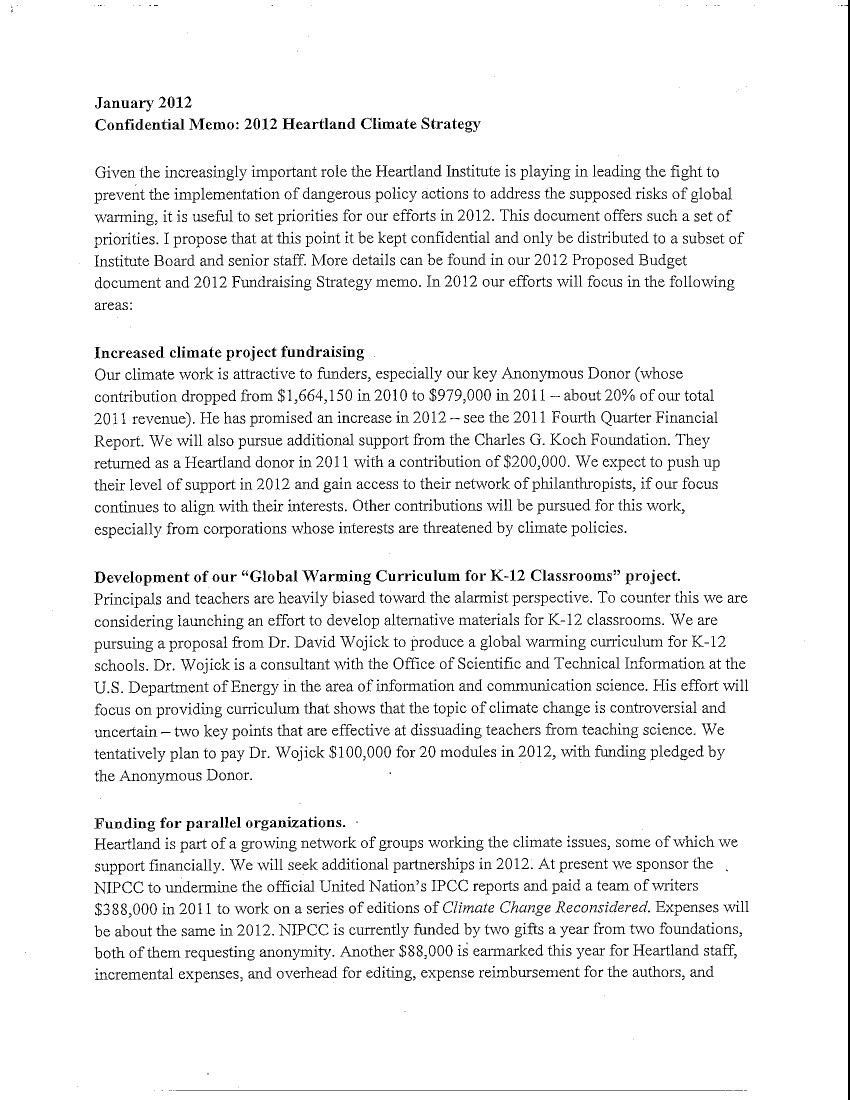

In 1987 the US Senate was about to vote on the Durbin Amendment, banning smoking on all commercial airlines during trips of 2 hours or less. The evidence that second-hand smoke was dangerous to the health of non-smokers was piling up, and Surgeon General Dr. C. Everett Koop declared war on smoking a year earlier, wanting to make the country smoke free by the year 2000. The Tobacco Institute put consultant Alan W. Katzenstein to work.
Katzenstein was not a scientist, he was 100% PR, with an MBA from New York University, he worked in the advertising industry for 15 years, after which he started his own company "Katzenstein Associates" in 1973. The "background in chemical and biological sciences" he mentions on his bio is untraceable. In the early 1980's he worked for the Edison Electric Institute, a coal fuelled association of power companies, helping them to prevent regulations on acid rain. In 1987 his talents were put to use to battle regulations on Environmental Tobacco Smoke (ETS).

The New York Times published a letter from Katzenstein in which he states that no convincing evidence exists linking environmental tobacco smoke to lung cancer. Two months later, the Tobacco Institute started circulating a report written by Katzenstein called Environmental Tobacco Smoke (ETS) and the Risk of Lung Cancer - How Convincing is the Evidence? in which concerns regarding secondhand smoke are called overstated and unsupported. After that, Katzenstein went on a media tour, giving 62 TV, radio and newspaper interviews, in which he was presented as an air quality expert (Halperin, 2013). The evidence was clear enough though, and despite his best efforts, the amendment passed the Senate. His strategy of maintaining the idea that there is no convincing evidence, is still applied today though, in sometimes even more absurd ways.
A more recent example of Katzenstein's strategy is the Heartland Foundations 2012 plan to spend $100,000 for spreading the message in K-12 schools that "the topic of climate change is controversial and uncertain - two key points that are effective at dissuading teachers from teaching science". "Principals and teachers are heavily biased toward the alarmist perspective. To counter this we are considering launching an effort to develop alternative materials for K-12 classrooms", the leaked document reads. Other interesting plans disclosed in the document are the intention to "cultivate" more neutral voices with big audiences, such as Judith Curry, "who has become popular with our supporters". Curry was one of the witnesses in the March 2017 Congressional hearing of the Committee on Science, Space, and Technology, calling for "red teams" to investigate the causes of global warming and challenge the findings of the United Nations' International Panel on Climate Change (IPCC).

Leaked Heartland Institute memo, 2012. Online at:Desmog blog: https://www.desmogblog.com/sites/beta.desmogblog.com/files/2012 Climate Strategy.pdf [Accessed: 19-04-2017]
Halperin, D., 2013. Before Rubio, Before Luntz: Meet a Founding Father of Climate Change Denial. Republic Report, online at: https://www.republicreport.org/2013/alan-katzenstein-climate-denial/ [Accessed: 19-04-2017]